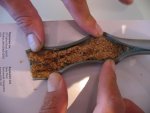The Famous Grouse
Petty Officer 1st Class
- Joined
- Sep 26, 2008
- Messages
- 291
Re: E-10 Myths - Fact or Fiction
This is exactly correct.
You can't get any data on what ethanol does or does not do to engines when it comes to causing or contributing to mechanical problemse because none exists. Instead anything and everything gets blamed on "ethanol" and the urban legends build and build and build until the majority of people believe them.
As another poster has pointed out, here in Minnesota we're not newbies to having ethanol in our gas the way many states are. Even 25 years ago, much of the gasoline in this state was blended with ethanol. So if anybody should have noticed all these huge "ethanol problems" it would have been us.
I own 3 boats, one I/O and 3 outboards. I have a shop full of power equipment including multiple brush cutters, chainsaws, blowers, pressure washers, mowers, tractors, and snowblowers. If anyone would have been impacted by all these newfound "ethanol problems" it would have been me.
But I've noticed no more issues that can be traced to fuel contamination now than I ever have. Ethanol simply does not significantly increase the number of problems the average user will experience when it comes to gasoline engines.
If anything, I think the fear that ethanol might cause problems can actaully be a good thing because it encouraged many people to do what they should be doing anyway: Install a fuel filter and water seperator, use fresh fuel and don't store fuel long-term, treat fuel that's in storage, and keep up on engine maintainance.
Grouse
I doubt if there is 1% of the posters on these forums that even knows why his engine failed. If there is water in the fuel, they say it's ethanol's problem, but the facts are water got into the fuel long before ethanol was around, and it happened a lot. Lean fuel from dirty carbs melts down pistons, but ethanol is blamed. Or maybe the timing is so far off, or the engine is so over propped it's lugging the engine or ...............
So basically, all you would get is a bunch of "I think it was the ethanol" posts, and most of them wouldn't be. So in the end, few if any facts.
This is exactly correct.
You can't get any data on what ethanol does or does not do to engines when it comes to causing or contributing to mechanical problemse because none exists. Instead anything and everything gets blamed on "ethanol" and the urban legends build and build and build until the majority of people believe them.
As another poster has pointed out, here in Minnesota we're not newbies to having ethanol in our gas the way many states are. Even 25 years ago, much of the gasoline in this state was blended with ethanol. So if anybody should have noticed all these huge "ethanol problems" it would have been us.
I own 3 boats, one I/O and 3 outboards. I have a shop full of power equipment including multiple brush cutters, chainsaws, blowers, pressure washers, mowers, tractors, and snowblowers. If anyone would have been impacted by all these newfound "ethanol problems" it would have been me.
But I've noticed no more issues that can be traced to fuel contamination now than I ever have. Ethanol simply does not significantly increase the number of problems the average user will experience when it comes to gasoline engines.
If anything, I think the fear that ethanol might cause problems can actaully be a good thing because it encouraged many people to do what they should be doing anyway: Install a fuel filter and water seperator, use fresh fuel and don't store fuel long-term, treat fuel that's in storage, and keep up on engine maintainance.
Grouse




















